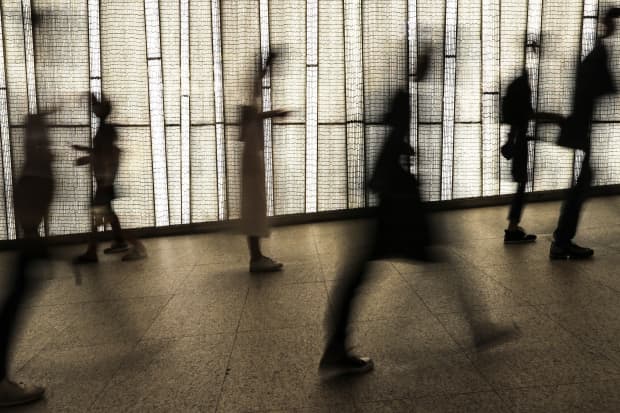Asian markets mostly rise, though U.S. sanctions weigh on chip makers

People are seen silhouetted against a storefront display in Hong Kong on Sunday.
AFP via Getty Images
Asian markets mostly gained in early trading Monday, amid fallout of U.S. restrictions against Chinese tech companies.
Japan’s Nikkei 225
NIK,
rose 0.7% and Hong Kong’s Hang Seng index
HSI,
advanced 0.8%. The Shanghai Composite
SHCOMP,
slipped 0.2%, while the smaller-cap Shenzhen Composite
399106,
fell 0.6%. South Korea’s Kospi
180721,
gained 1.3%, while benchmark indexes in Taiwan
Y9999,
Singapore
STI,
and Indonesia
JAKIDX,
were mixed. Australia’s S&P/ASX 200
XJO,
inched up 0.2%.
Hong Kong-traded shares of Chinese chip maker Semiconductor Manufacturing International Corp.
981,
plunged after weekend reports that the U.S. government has imposed sanctions against it, over concerns that exports to the company were being diverted to military uses, according to the Financial Times.
In Japan, chip maker Kioxia Holdings Corp. postponed its massive IPO, after saying last week that U.S. export restrictions against China’s Huawei Technologies were hurting its business.
And in the U.S. on Sunday, a federal judge blocked the Trump administration’s ban against the popular Chinese-owned TikTok app from U.S. app stores. The U.S. has claimed the app poses a national security risk, and a deal to partner with Oracle
ORCL,
and Walmart
WMT,
to assuage those concerns is in the works.
Stocks on Wall Street rose Friday, but for the week, the Dow
DJIA,
was down 1.8%, and the S&P 500
SPX,
lost 0.6%. It was the fourth straight weekly decline for the two indexes, matching the longest losing streak since August 2019. The Nasdaq
COMP,
gained 1.1% for the week, ending a three-week stretch of declines.
“This week is all about payrolls and presidential debates,” Stephen Innes, chief global markets strategist at AxiCorp, wrote in a note. “But political malevolence and the torrent of global pandemic concerns continue to rattle on investors’ nerves.”



